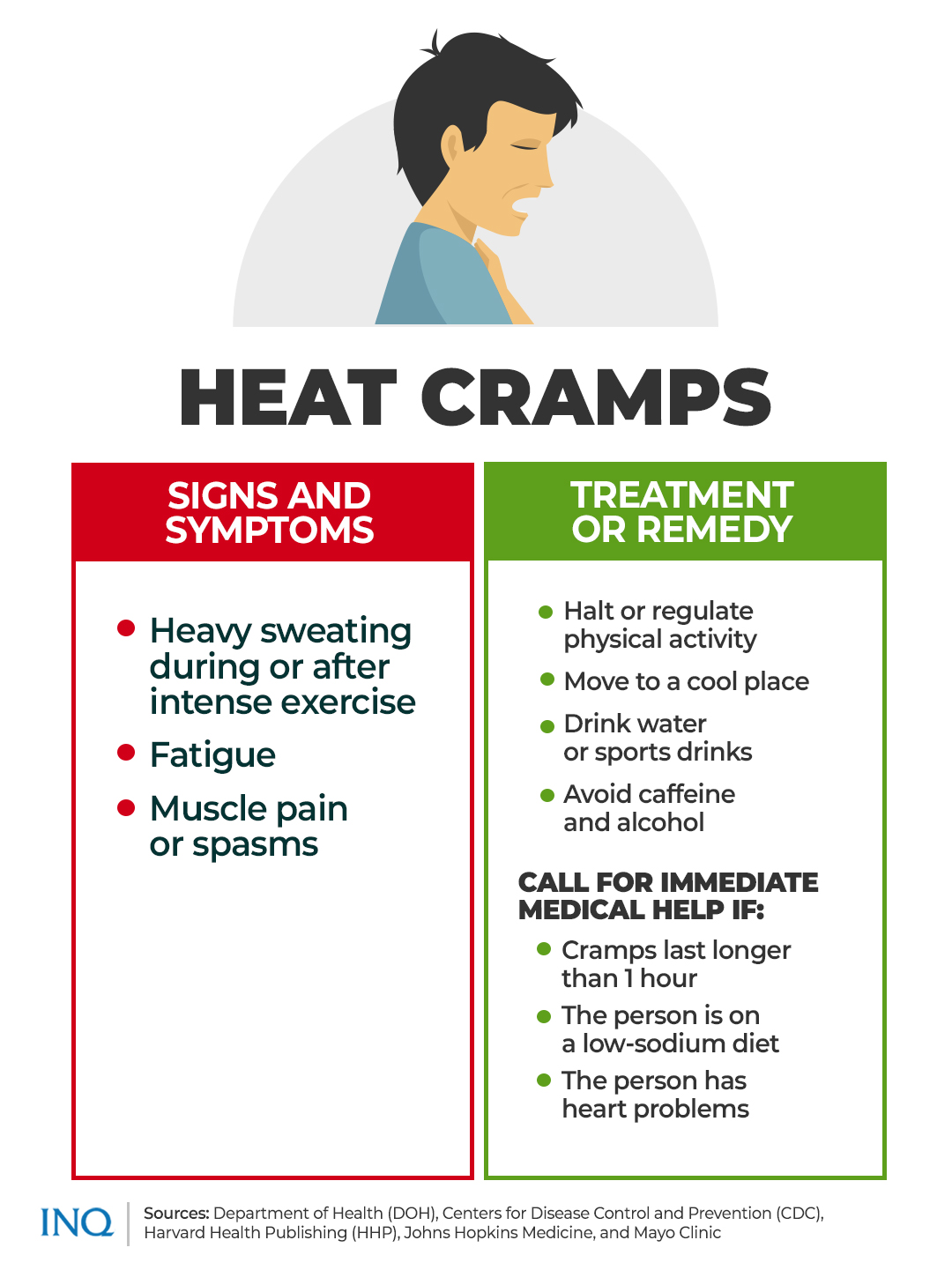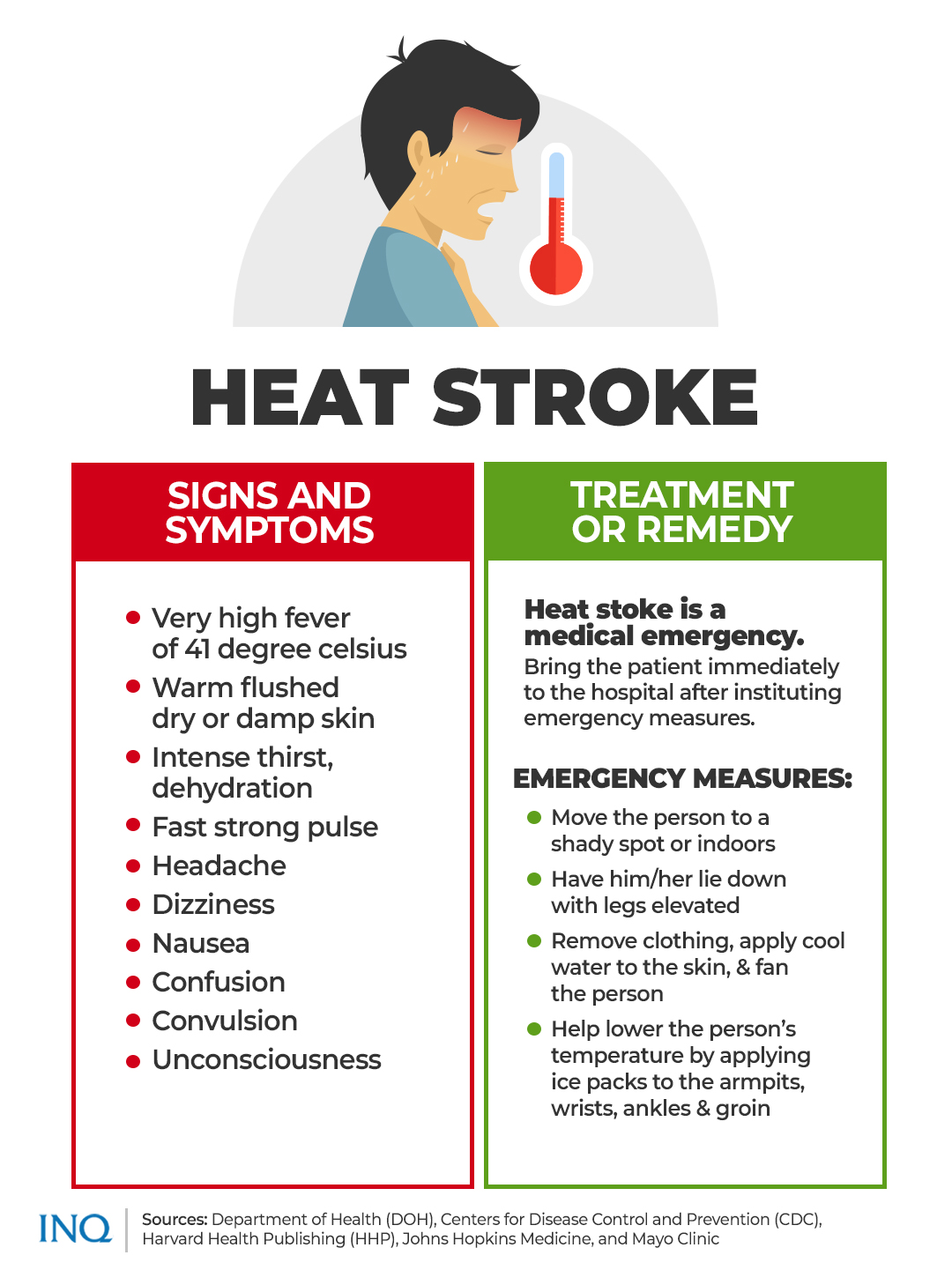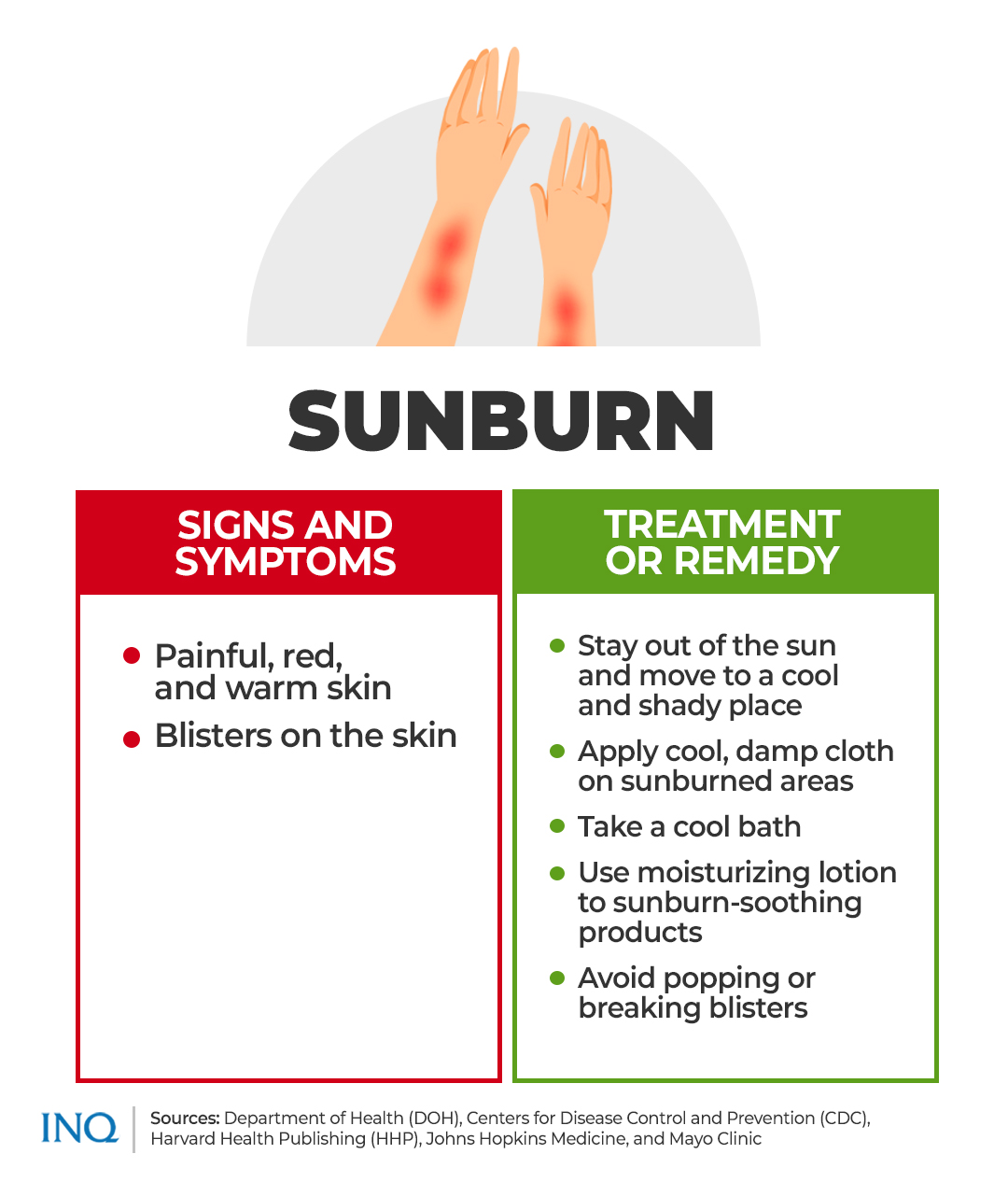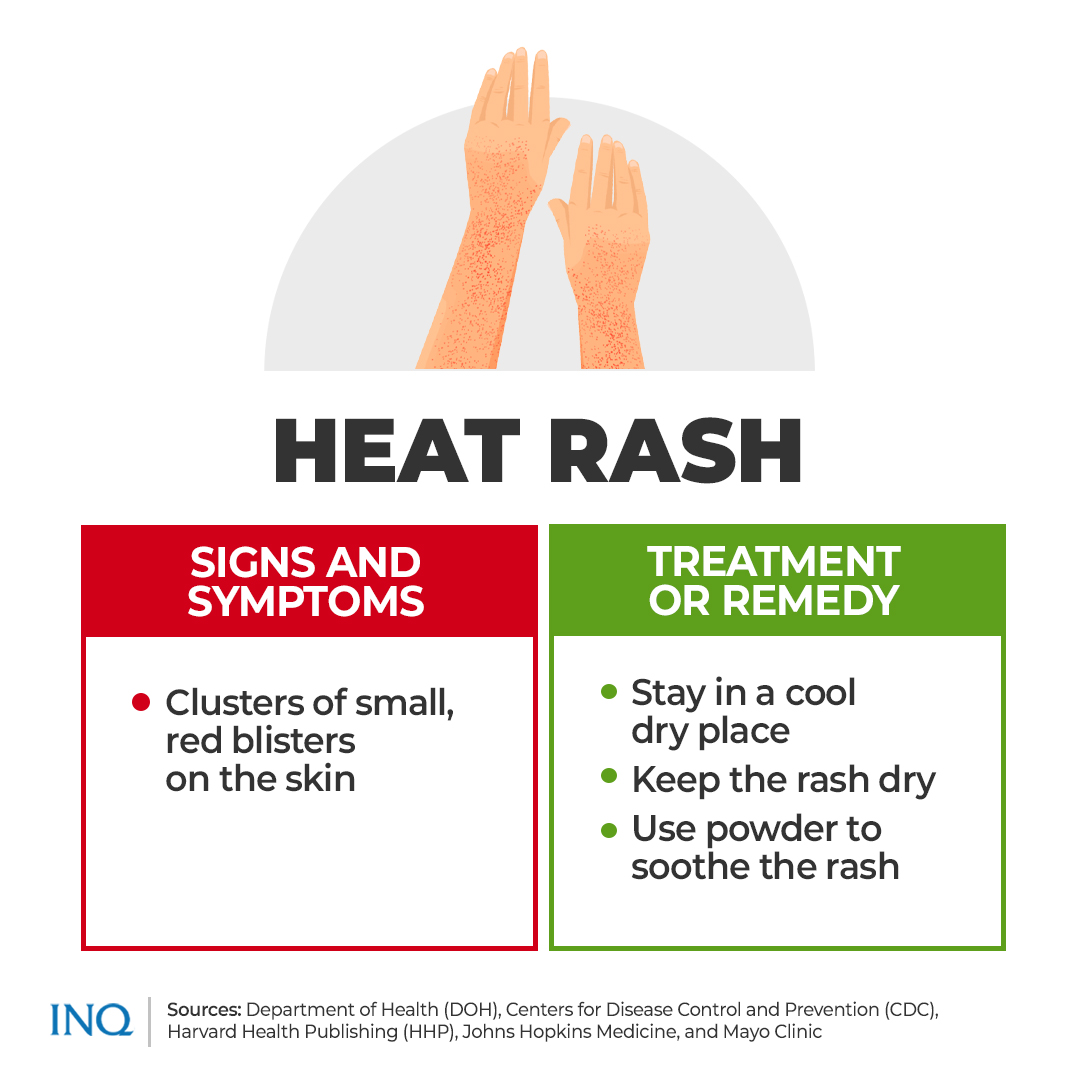EXPLAINER: Prevent heat exhaustion, heat stroke, other related illness
MANILA, Philippines — As the blistering temperature persists in the country, the public has been warned by the state weather bureau to prevent the dangers of sweltering weather — heat cramps, heat exhaustion, and the potentially fatal heat stroke.
The Philippine Atmospheric, Geophysical, and Astronomical Services Administration (Pagasa) advised the public to remain indoors as much as possible and keep themselves hydrated amid the searing temperatures.
The word of caution came after Dagupan City registered an alarming 51 degrees Celsius heat index on Sunday.
The heat index at Sangley Point in Cavite City likewise soared to 50 degrees Celsius for two consecutive days last Friday and Saturday.
According to Pagasa, the heat index or the “human discomfort index” gives the “apparent” temperature, or what humans perceive or feel like the temperature affecting their body.
Heat index could vary depending on where an individual is and is different from the temperature forecast for the day, the state weather bureau clarified.
Article continues after this advertisementAs the public brace for hotter weather and the rising heat indices for the following days, below are the warning signs and symptoms of heat-related illnesses and how to prevent them.
Article continues after this advertisementSigns and symptoms, treatment, remedy
According to the Centers for Disease Control and Prevention (CDC), among the most common heat-related diseases or illnesses are dehydration, heat cramps, heat exhaustion, heat stroke, sunburn, and heat rash.
The following are the usual signs and symptoms as well as some treatment or remedy for the said heat-related illnesses based on data provided by CDC, the Department of Health (DOH), Harvard Health Publishing (HHP), Johns Hopkins Medicine, and Mayo Clinic.
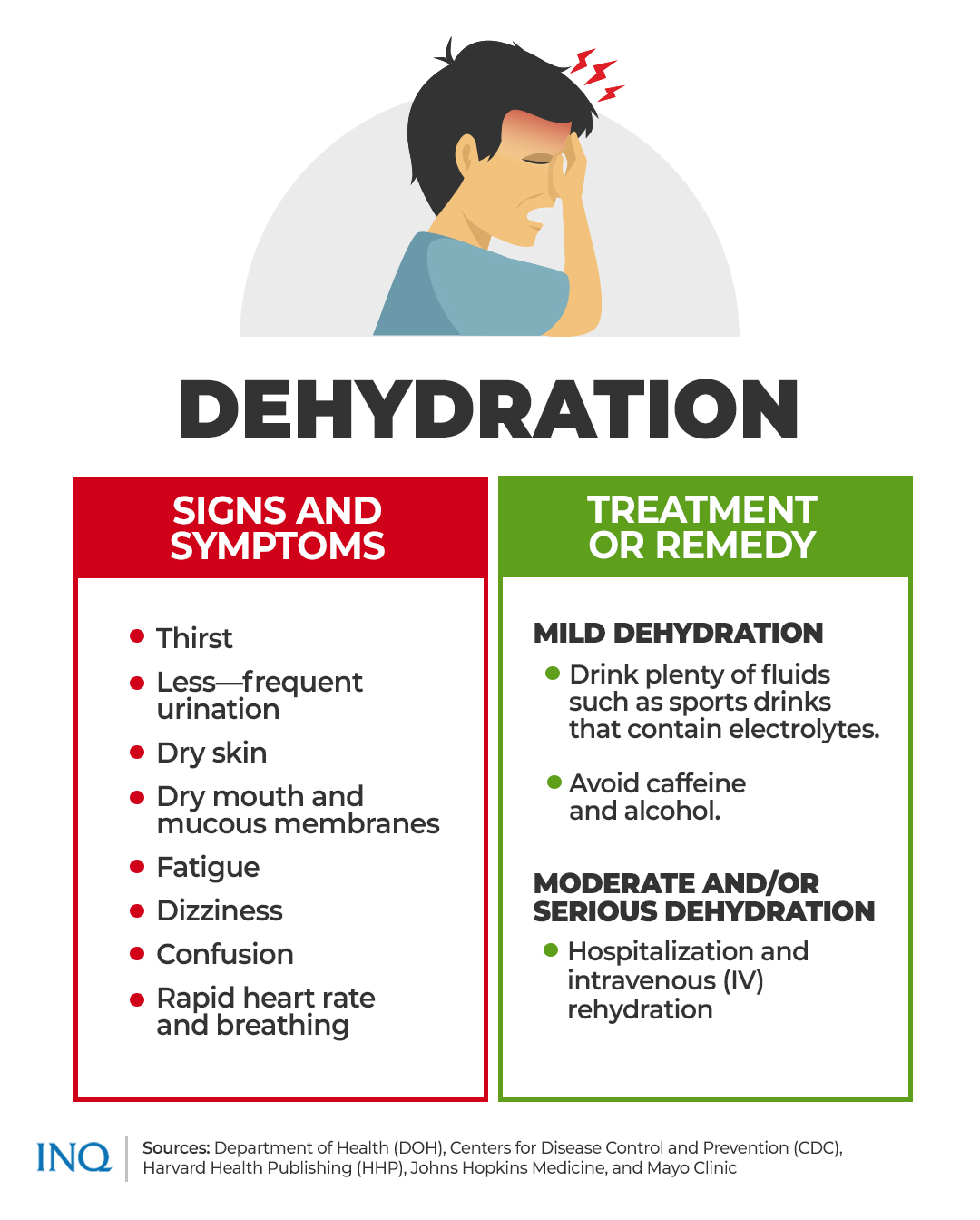
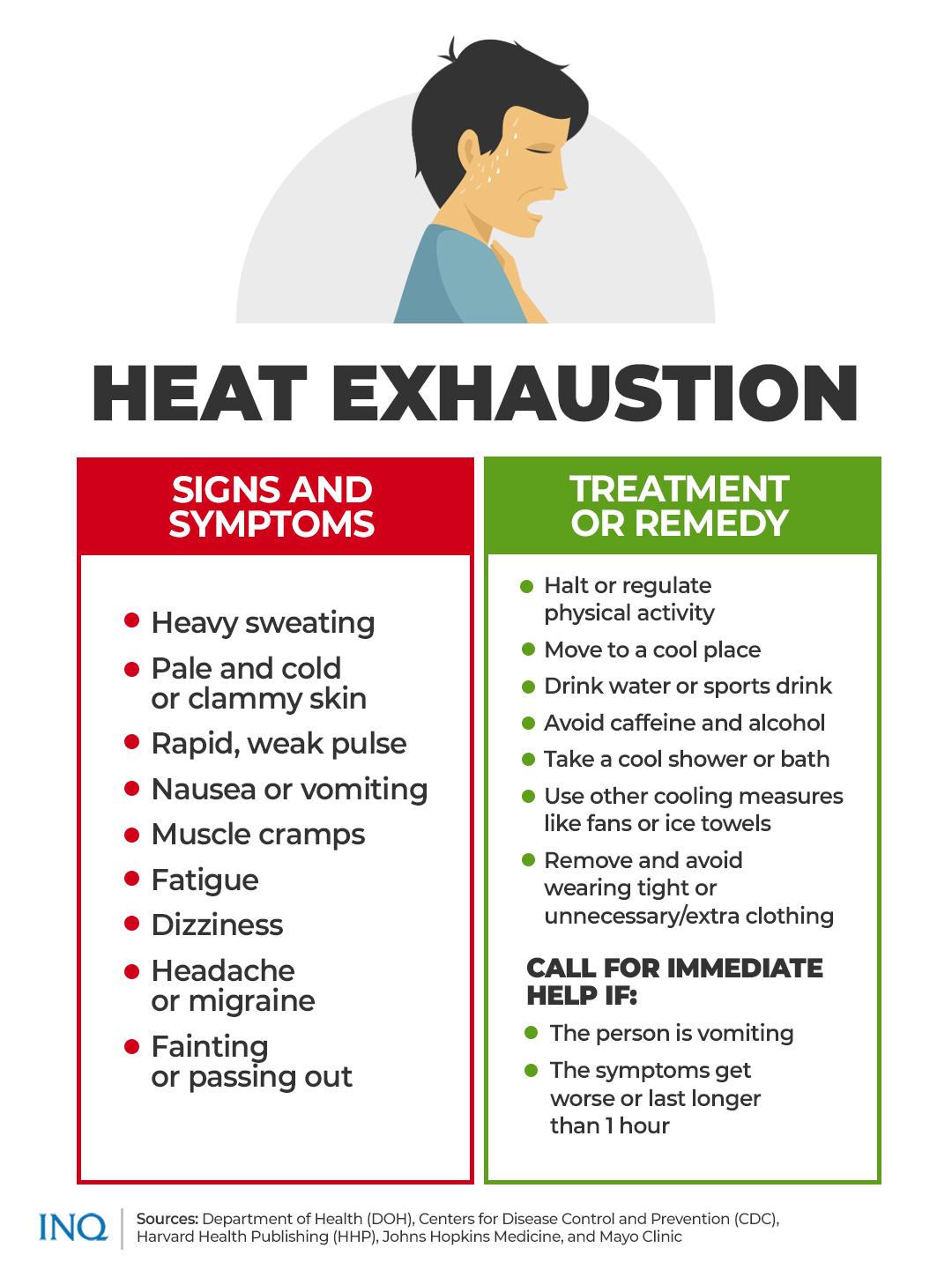
Causes and risk factors
In hot weather, the body cools itself through sweating. “The evaporation of your sweat regulates your body temperature,” the U.S.-based nonprofit organization Mayo Clinic explained.
However, vigorous activity during extreme heat and humid weather affects the body’s ability to cool itself efficiently.
When this happens, the internal heat can build up to “dangerous” levels, said Johns Hopkins Medicine.
Aside from high heat index, hot weather, and strenuous activity, Mayo Clinic likewise identified dehydration, alcohol intake, and overdressing as some causes of heat exhaustion, heat cramps, and heat stroke.
It also detailed that infants, children, and adults over 65 years old are at higher risk of experiencing heat-related illnesses.
“The body’s ability to regulate its temperature isn’t fully developed in the young and may be reduced by illness, medications, or other factors in older adults,” the organization said on its website.
Certain medications and obesity can also affect the body’s ability to remain hydrated and respond appropriately to heat.
Prevention
To prevent getting heat stroke or other heat-related illnesses, the health department provided the following tips:
- Limit the amount of time you spend outdoors.
- Drink plenty of water.
- Avoid tea, coffee, soda, and alcohol.
- Schedule heavy-duty activities for the beginning or end of the day, when it’s cooler.
The CDC also recommended the following:
- Choose lightweight, light-colored, loose-fitting clothing.
- Cut down on exercise or strenuous activities during the heat.
- Wear sunscreen.
- Avoid hot and heavy meals.
In addition, Johns Hopkins Medicine advised the public to opt for water and sports drink and limit the intake of caffeinated tea, coffee, soda, and alcohol, as these can lead to dehydration.
It also recommended people with chronic conditions to talk with their healthcare provider about extra precautions to protect themselves against heat stroke.
